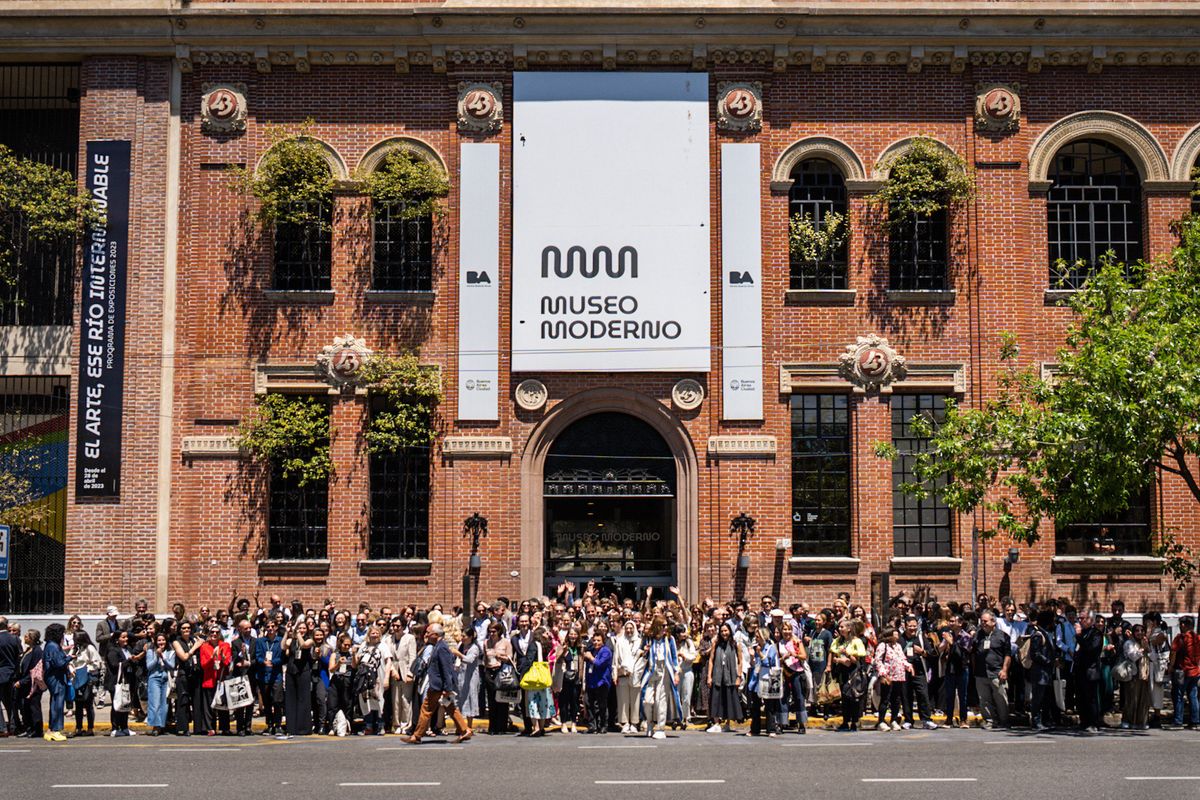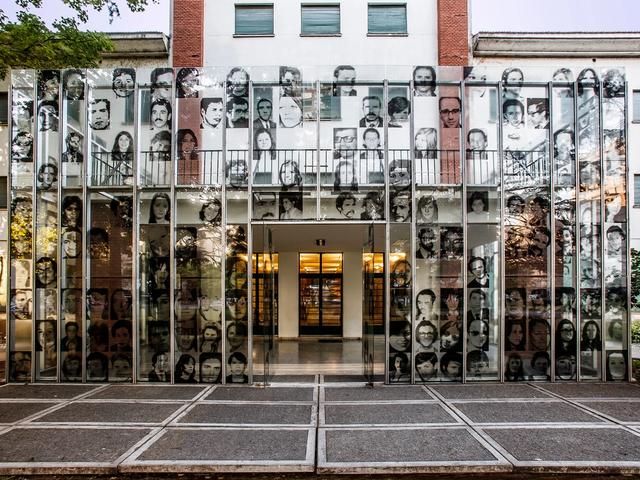On 19 November, Argentines will return to the ballot to decide who will be the country’s next president. The stakes could not be higher, with inflation topping 140%, two fifths of the country’s population living in poverty, and the region’s second-largest economy facing a dire situation with a looming recession and severe discontent with the status quo. The country’s cultural sector is certainly not exempt from these conditions.
In addition to boasting more than 500 independent cultural centres and the highest concentration of bookstores in the world, Buenos Aires is one of Latin America’s leading cities. The city also boasts a concentration of world-class museums, including the Museo de Arte Latinoamericano, the Xul Solar Museum and the Museo Moderno, as well as a host of private foundations such as the Fundación Proa and the Amalia Lacroze de Fortabat Art Collection.
On the heels of the first round of the election last month, the Museo Moderno de Buenos Aires hosted the annual International Committee for Museums and Collections of Modern Art (CIMAM) conference, which brought together more than 250 senior museum staff and directors from around the world. The theme of the conference asked how art institutions act as agents of change, a particularly poignant question in Argentina today, where the cultural sector is facing challenges not only from rising inflation but also from a rising political figure intent on smashing the status quo.
Javier Milei—a far-right libertarian, former tantric sex coach and admirer of Donald Trump—is polling slightly ahead of economy minister Sergio Massa ahead of Sunday’s vote. He has based his campaign on pledges to eliminate institutions ranging from the central bank to the ministry of culture, to end corruption and rein in inflation. Massa, the candidate of the ruling Peronist coalition, faces challenges due to his inability to control escalating prices, as well as his connection to previous parties that have been in power as the country’s economic situation has spiralled.
Addressing the country’s political and economic difficulties, Victoria Noorthoorn, director of the Museo de Arte Moderno de Buenos Aires, says the situation has been dire for quite some time. “We’re going through hell,” she says. “But we are a team that is used to adversity.”
Though Museo Moderno’s public budget is 85% provided by city coffers (and not the federal culture ministry that Milei wants to abolish), Noorthoorn says challenges have persisted despite changes in political leadership. Museums, she adds, must provide safe spaces for dialogue and change. “I have tried to strengthen the museum by ensuring that it is not the space of any single political party or doctrine.”
That spirit of avoiding political skirmishes and overcoming hardships is echoed by others in the country’s art industry. Speaking on the sidelines of the CIMAM conference, the Spanish curator and educator Chus Martínez stressed the importance of preparedness when it comes to the capacity of culture to respond to urgent political, social and economic issues.
“We don’t cure directly, but we create the conditions of readiness,” Martínez said. “Everyone is extremely worried about social polarisation.” She added: “The practice-based institution creates the possibility of freedom of speech and also for holding contradictory opinions.”
Still, many in Buenos Aires worry what a Milei victory will mean for the city’s cultural fabric. According to Andrés Buhar, director of Arthaus, a privately funded art space in the city’s centre, if Milei does win there will be a strong undercurrent of resistance. “It’s a very important election that symbolises the failure of politics to solve economic problems,” he says, adding: “Milei is a symbol of the frustration people have with the political consensus.”
The Argentine artist Luciana Lamothe, who will represent the country in the 2024 Venice Biennale, says she is worried about what might happen to the rights of minorities under a far-right, Milei-led government. “We are worried because I think Milei is a very dangerous person,” she says.
According to Enrique Avogadro, the municipal minister of culture for Buenos Aires, a Milei victory will present challenges for cultural workers in the country. But, he adds, Argentinians are resilient. “Our democracy is strong and it will withstand even a crazy alt-right candidate. Though I am not really enthusiastic about the alternative,” he says, referring to Massa. “At least it's within the democratic framework of our political system.”



